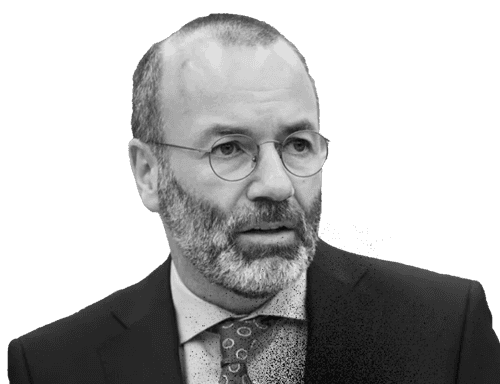After briefly serving in the Bavarian Landtag, he was elected to the European Parliament in 2004. He also served as the Bavarian Chair of the Junge Union from 2005–2007. After a decade of serving in the European Parliament, he was elected as the head of the EPP parliamentary faction in 2014. Weber was also chosen as the EPP’s Spitzenkandidat for the Presidency of the European Commission ahead of the 2019 election, becoming the President of the party in 2022, replacing Donald Tusk. He has since replaced many figures associated with the more moderate faction within the EPP, such as Antonio López-Istúriz White, in a bid to arrest the recent decline of the party.
Weber has long been associated with the right wing of the EPP. He defended Hungary after the Tavares report was published in 2013, claiming that the report, which pointed to the systematic violations of the rule of law in Hungary, was a politically motivated hit job by the left. He ultimately backed the resolution calling for a return to the rule of law 2018 Sargentini report, which led to the suspension of some of Hungary’s privileges within the European Union. This ultimately expelled Fidesz from the EPP following the antisemitic campaigning committed by the party against George Soros ahead of the 2019 European election.
He has called for Giorgia Meloni’s Brothers of Italy party to be admitted into the EPP and supported coalitions between the far right and the EPP on a national level within European countries. Recently, he has attempted to use his position as leader of the largest group in the European parliament to support Feijoo, of the Spanish Partido Popular. As a result, he supported a move made by VOX to retroactively legalize the illegal extraction of water from the Doana National Park despite criticism by the European Commission. Furthermore, he has used his position in the European Union to claim that Prime Minister Pedro Sanchez is undermining the rule of law in Spain by making a pact with Junts per Catalunya.



